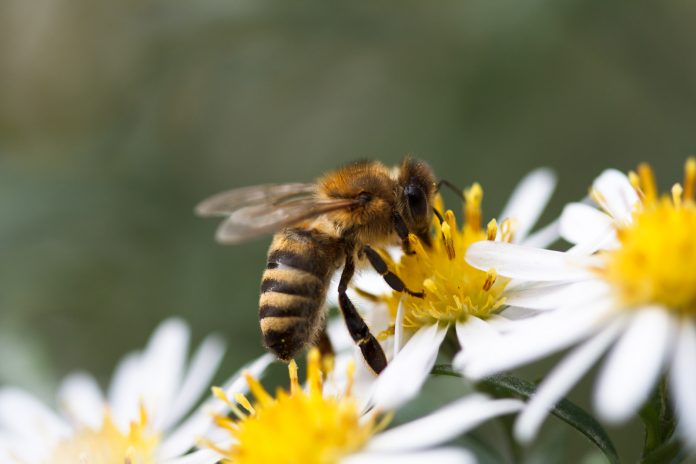To rescue bees from extinction, the European Union has voted for a near-total ban on insecticides blamed for killing off bee populations. All 28 EU member states approved a ban on three neonicotinoid pesticides after the European food safety agency said in February that most uses of the chemicals posed a risk to honey bees and wild bees.
Dressed in black and yellow bee suits, demonstrators rallied outside the headquarters of the European Commission in Brussels on April 27 ahead of the vote for a ban on three key pesticide chemicals.
EU Environment Commissioner Vytenis Andriukaitis said he was “happy that member states voted in favour of our proposal” to restrict the chemicals. He posted a photo of the activists on Twitter.
According to a statement released by the European Commission, EU states had “endorsed a proposal by the European Commission to further restrict the use of three active substances… for which a scientific review concluded that their outdoor use harms bees”.
In an interview with FRANCE 24, Éric Andrieu, president of the European Parliament’s commission on pesticides, said: “The mortality rate of bees, which play a major role in pollination and thus in biodiversity, has reached 80% in some parts of Europe, particularly because of the use of these pesticides. That’s why we urgently need to put an end to this plague.”
“This comprehensive neonicotinoid ban, covering all outdoor crops, is a tremendous victory for our bees and the wider environment,” said Sandra Bell, bee campaigner for Friends of the Earth Europe.
In a separate report, the BBC noted that one key element helping push the vote through was the UK’s change of heart on the use of these insecticides. Environment Secretary Michael Gove had announced last November that Britain would now support further restrictions.
“I think it has helped the dynamic,” Franziska Achterberg from Greenpeace told BBC News. “It has helped sway Ireland definitely, and then lately, the Germans, the Austrians and the Dutch. I think the fact the UK had come around was a good signal for them as well, that they could not stay behind.”
Growers will only be free to use neonicotinoids in greenhouses across the EU, despite some environmental groups having reservations about the chemicals leaching into water supplies. Other neonicotinoids, including thiacloprid and sulfoxaflor, will continue to be exempt from the ban.
The new regulation will be adopted in the coming weeks and will be applicable by the end of 2018.

